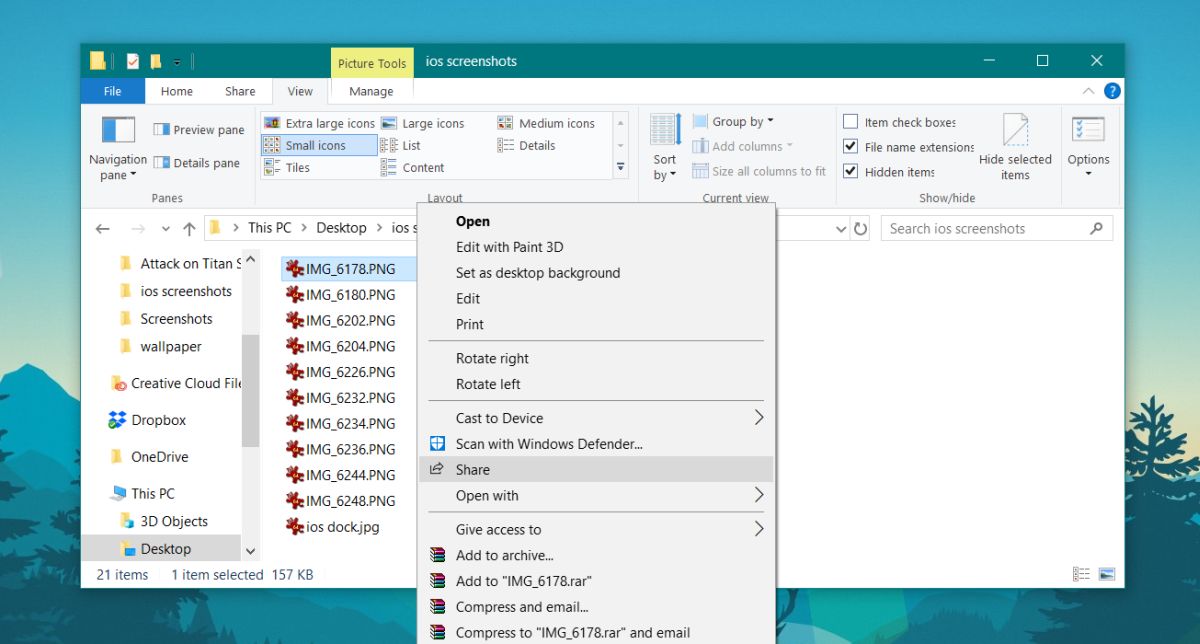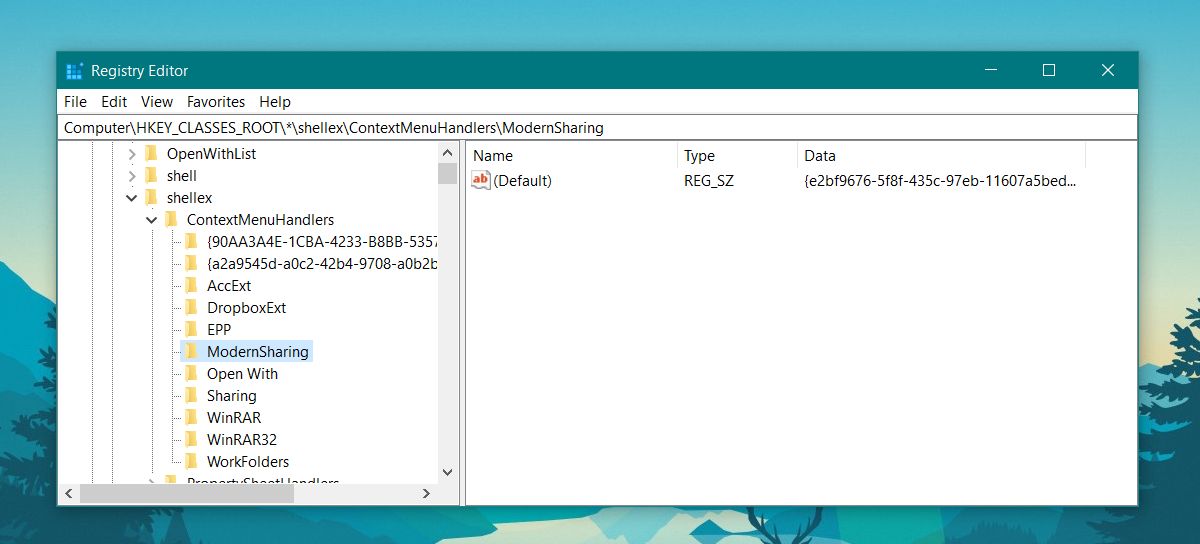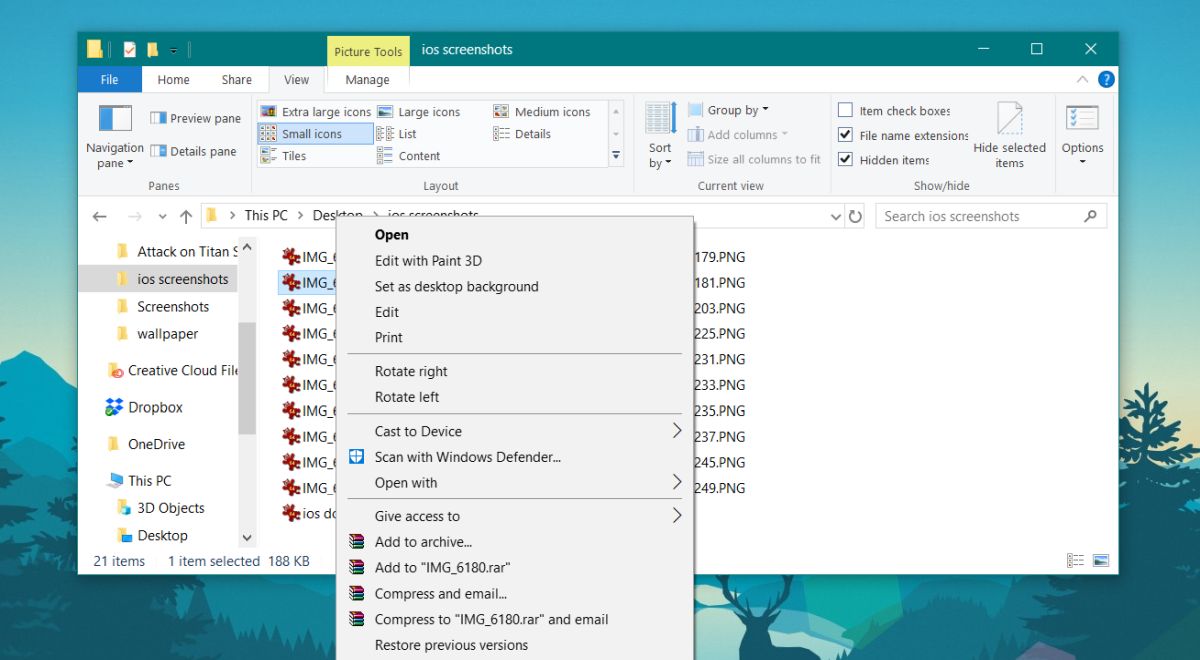How To Remove Share Option From The Context Menu In Windows 10
We touched on contextual sharing in Windows 10 a while back. With contextual sharing, you can share files directly from the context menu via apps that support it. Apps that support contextual sharing automatically appear in the Share menu, along with a few suggested apps. As much as Windows 8 got flak for its many, many poor design choices, the contextual sharing ala the Charms bar wasn’t bad. This Share option is barely there. If you don’t like using it, you can remove Share from the context menu in Windows 10.

If you’ve never used this feature before and thought the Share option was added either by OneDrive or some other cloud drive app you use, give it a spin. You might find you like it. If not, removing it is more or less simple. You will need to edit the Windows Registry to remove Share from the Context Menu so make sure you have administrative rights.
Remove Share From The Context Menu
Open the Windows Registry and go to the following location. As of the Creators Update, you can jump right to a location in the registry from the address bar at the top.
HKEY_CLASSES_ROOT\*\shellex\ContextMenuHandlers

Inside this key, there’s another key called, “ModernSharing”. Delete it. Open File Explorer, right-click a file and the Share option will no longer be there.

If you later decide the option wasn’t useless, you can get it back just as easily. You will need to modify the registry again so you need administrative rights. Return to the following location and right-click the ContextMenuHandlers key. Select New>Key from the context menu and name it ModernSharing.
HKEY_CLASSES_ROOT\*\shellex\ContextMenuHandlers
The Share option will be back in the context menu of any file you click on.
The Share option was added to the context menu in the Creators Update. Windows 10 didn’t have it when it was initially released. It seems Microsoft wanted to invest a little time and thought into how they executed contextual sharing but this appears to be a miss. The option is easy to miss so unless you go looking for it yourself, you’re unlikely to find it. Windows 8, for all its flaws had a neat feature in the form of the Charms bar. Not only was the feature innovative, it was also easy to use and adapt to. This share option is clunky and Microsoft uses it to push ‘suggested apps’ which is enough to put anyone off. Most people are already weary of ads in Windows 10 which is basically Microsoft pushing its products on to users. Suggested apps seem like a part of it although the apps that are suggested aren’t owned by Microsoft.
